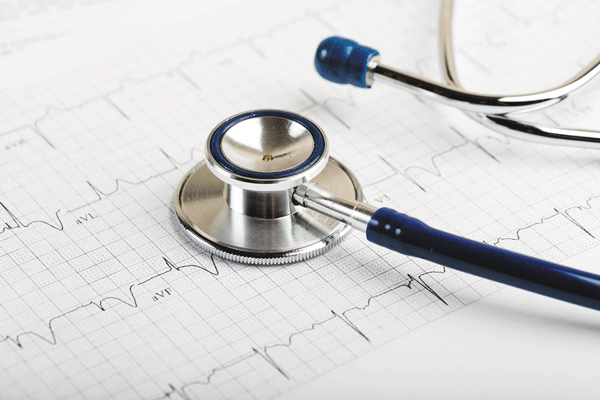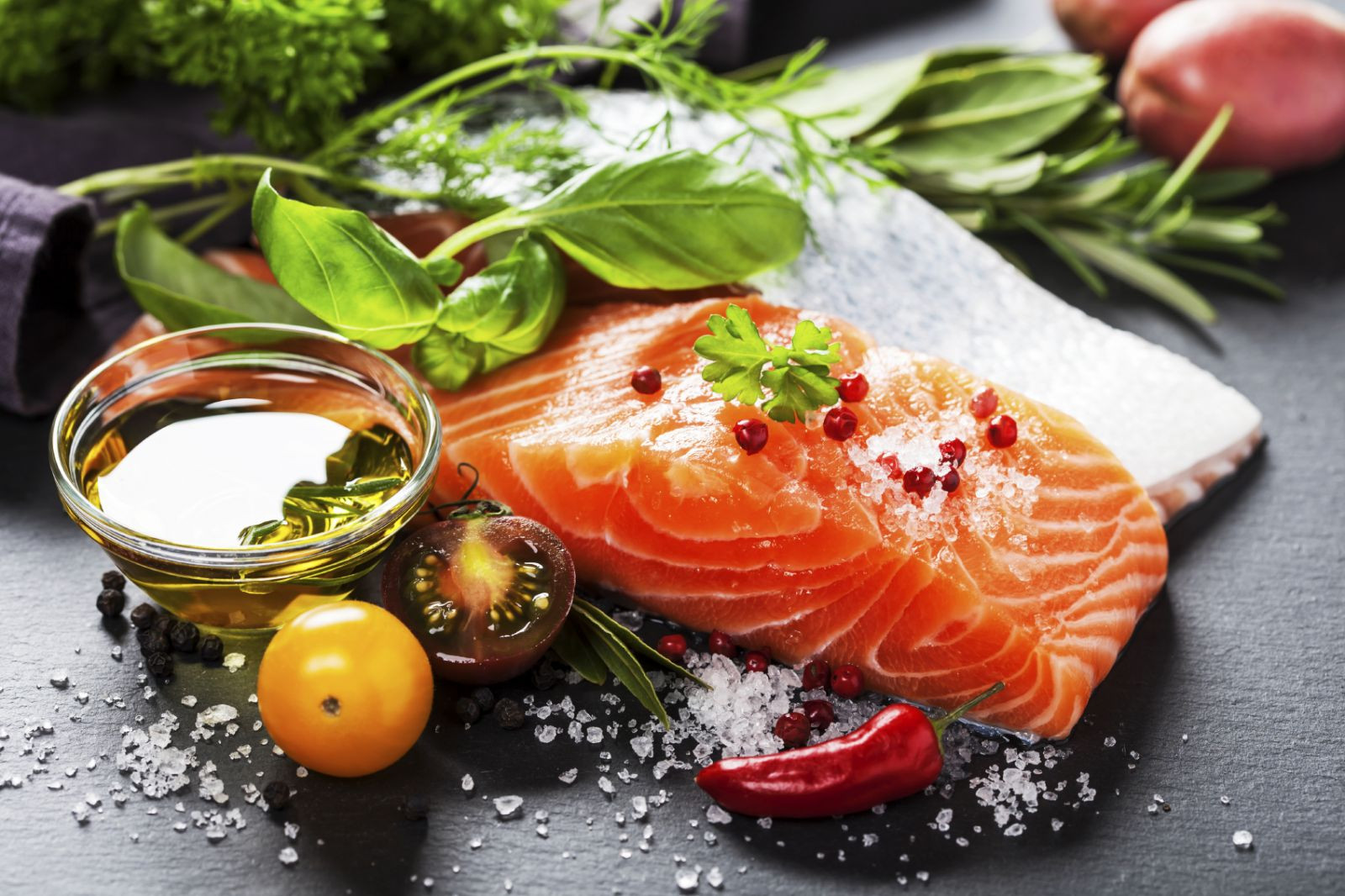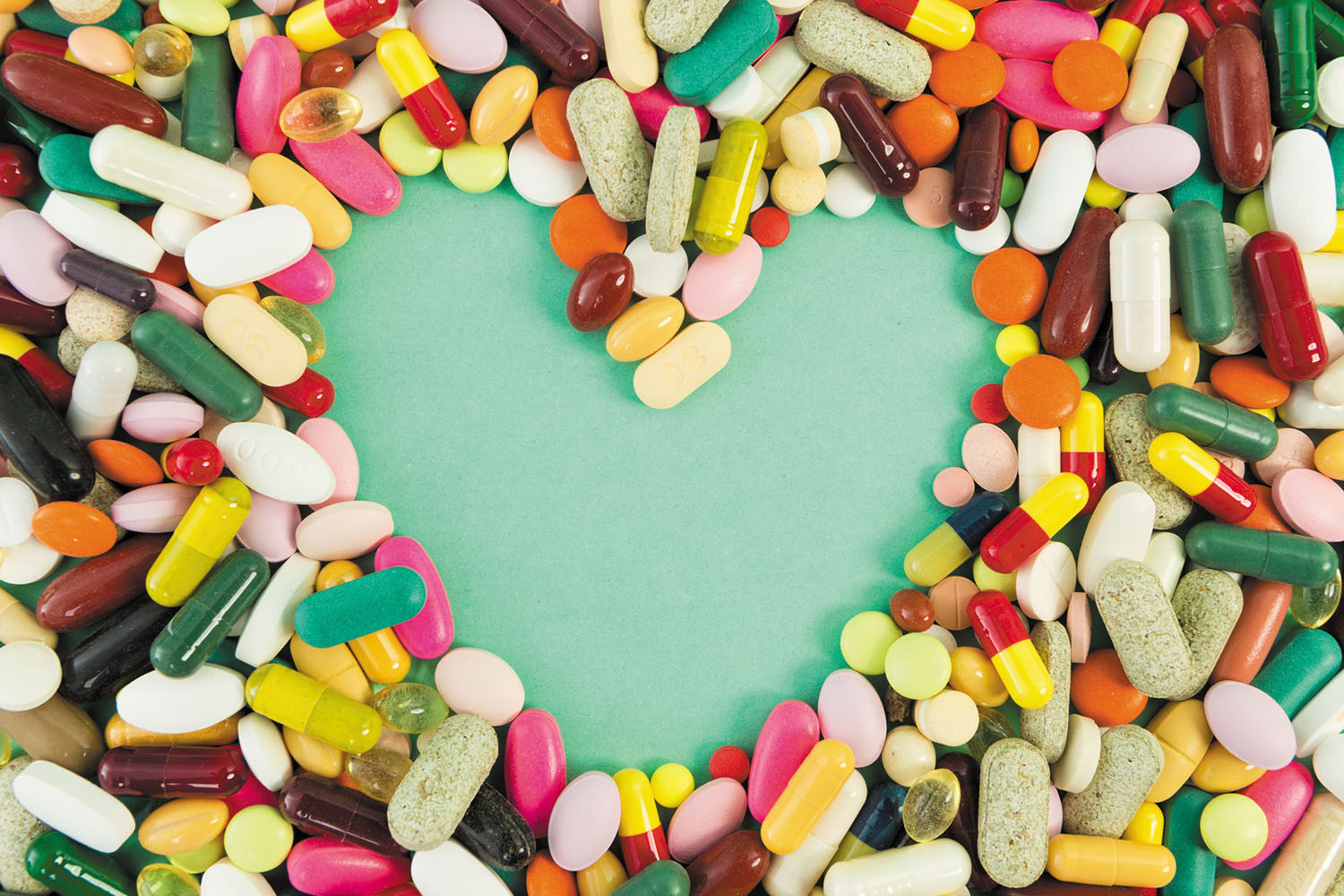
Trying to lose weight? Be careful not to lose muscle

Is your skin problem actually an autoimmune condition?

People with diabetes face higher risk of hearing loss

Antibiotic-free fixes for recurrent UTIs

Musculoskeletal syndrome of menopause: When menopause makes you ache all over

When can older women stop getting mammograms?

To lose weight, especially harmful belly fat, combine diet and exercise

Can men hold off on treating recurring prostate cancer?

The 7 types of rest and why we need them all

What are the early warning signs of cervical cancer?
Stroke Archive
Articles
Vitamin D and omega-3 fatty acids supplements fall short when it comes to disease prevention
Image: © Hunterann/Thinkstock
Research we're watching
For years, many have speculated that taking vitamin D and omega-3 fatty acid supplements might help to prevent heart attacks, strokes, and certain cancers. But a study by Harvard researchers published online November 10, 2018, by The New England Journal of Medicine has found that the benefits may be more limited than originally hoped.
The results of the Vitamin D and Omega-3 Trial (VITAL), which enrolled more than 25,000 people and ran for more than five years, showed that while omega-3 supplements did appear to reduce the risk of heart attack, particularly among African Americans, they did not appear to be effective in preventing stroke or cancer. Vitamin D supplements also saw few benefits when it came to preventing heart attack, stroke, or cancer — but they were associated with a drop in cancer deaths in people who had taken the supplements for at least a year or two.
Two daily servings of dairy: Good for your heart?
Research we're watching
Image: © nehopelon/Getty Images
People whose daily diets include at least two servings per day of milk, yogurt, or cheese appear to have a lower risk of heart disease, stroke, or death than people who don't consume dairy products.
The findings, published Sept. 11, 2018, in The Lancet, were based on food questionnaires from more than 136,000 people from 21 countries. After a follow-up that lasted an average of nine years, researchers found that adults who consumed two or more servings of dairy each day had a 22% lower risk for heart disease, a 34% lower risk for stroke, and a 23% lower risk of heart-related death. Observational studies such as this one cannot prove cause and effect. But dairy-based foods contain vitamins D and K, calcium, and other nutrients thought to be good for cardiovascular health. The findings support the benefits of all types of dairy, including full-fat versions. However, current guidelines still recommend nonfat or low-fat milk, yogurt, and cheese, which contain fewer calories and less saturated fat.
Atrial fibrillation may increase your risk of dementia
Image: Valeriya/Thinkstock
In the journals
People with atrial fibrillation, or afib, a type of irregular heartbeat that is linked with stroke, also may have a greater risk of dementia than those without the condition, according to a study published online Oct. 10, 2018, by Neurology.
Researchers recorded medical data from 2,685 people, average age 73. None of them had dementia and 243 had afib. After nine years, another 279 people developed afib. The researchers found that people with afib showed a faster rate of decline in thinking and memory skills than those without the condition, and were 40% more likely to develop dementia.
Certain pain relievers could harm your heart
But use is primarily a concern for people who take them over a long period or who have certain health risks.
Image: © clu/Getty Images
Numerous studies in recent years have raised concerns that common pain relievers known as nonsteroidal anti-inflammatory drugs (NSAIDs) increase the risk of cardiovascular problems, such as heart attack and stroke.
A study published September 4 in The BMJ seems to confirm the risks associated with NSAIDs and notes that one medication in particular — diclofenac (Voltaren) — is associated with even higher risks to cardiovascular health than others in the same category.
Low-dose aspirin might not benefit healthy adults
Research we're watching
Image: © dszc/Getty Images
Taking a low-dose aspirin every day could bring more risks than health benefits to healthy older adults, according to three papers from a single study, published online September 16 by The New England Journal of Medicine. The study, which began in 2010, included more than 19,000 adults ages 65 and older in the United States and Australia, who were free of cardiovascular disease, dementia, or disability, and followed participants for 4.7 years on average. Researchers found that treatment with a daily low-dose aspirin did not prevent dementia or disability. And rates of cardiovascular events (such as heart attacks and stroke) were similar between participants who took low-dose aspirin therapy and the comparison group that did not. While health outcomes were largely the same, people in the aspirin group were more likely than those who were not taking daily aspirin to experience significant bleeding, both in the gastrointestinal tract and the brain — a known risk of aspirin therapy.
While low-dose aspirin does not appear to benefit healthy older adults, this does not apply to people with known cardiovascular disease. For them, aspirin therapy significantly decreases risk of heart attack and stroke.
Mediterranean diet reduces stroke risk, particularly among women
Image: Bigstock
Research we're watching
Eating a Mediterranean-style diet, which is rich in fruits and vegetables, lean meats, and nuts, may help women over 40 reduce the risk of stroke, according to a study published in the journal Stroke.
The study enrolled more than 20,000 adults, ages 40 to 77, who were asked to record what they ate in a seven-day diet diary. Researchers then compared their diet and their stroke risk over a 17-year period.
Is aspirin best for peripheral artery disease?
Ask the doctor
Image: © Jeng_Niamwhan/Getty Images
Q. Is there something stronger than aspirin I can take for peripheral artery disease in my legs?
A. People with peripheral artery disease (PAD) in the legs have blockages (plaques of atherosclerosis) in the arteries that impair the flow of blood. Based on large scientific studies involving over 5,000 people with PAD, authorities recommend taking a daily aspirin tablet. For people with PAD, smoking cessation, regular exercise, and often other medicines such as statins, can help prevent further plaque buildup and decrease symptoms.
The head-heart connection: Mental health and heart disease
Common mental health disorders are linked to a higher risk of heart attack and stroke. Learn to spot the warning signs.
Image: © imtmphoto/Getty Images
Heart disease and mental health issues are both common. So it's not surprising that these problems often occur together. But are people with depression or anxiety more prone to developing cardiovascular disease?
Teasing out the answer to that question has proved tricky. Some factors known to contribute to a higher risk of heart disease (for example, an unhealthy diet, lack of exercise, and smoking) are also common in people with mental health issues. Now, new research that adjusts for those potentially confounding factors suggests the answer is yes.
Is it safe for women to drink alcohol?
Ask the doctor
Image: © DragonImages/Getty Images
Q. The Harvard Health Letter has often said that it is generally healthy for women to have one alcoholic drink per day. Yet I hear a recent study showed no benefit. What's the truth?
A. Before answering your question, let's define "one drink": it's 12 ounces of beer, 5 ounces of wine, or 1.5 ounces of hard liquor. And it means having one drink each day of the week, not having seven drinks on Saturday night, sleeping it off Sunday, and begging off until next Saturday night. Now, despite the recent study, we stick with what we've said, which reflects the research of outstanding nutrition scientists at Harvard and elsewhere.
Taking a multivitamin probably won’t help your heart
Vitamins don't seem to reduce cardiovascular risks, according to a new report.
Image: © Thunderstock/Getty Images
There may be reasons to take a multivitamin, but improving your cardiovascular health is not one of them, says a report in the July 10 issue of Circulation: Cardiovascular Quality and Outcomes. The authors found that for the average person, taking a multivitamin supplement didn't help prevent cardiovascular problems, such as heart attacks and strokes.
The findings were based on a review of general population studies conducted from 1970 to 2016, involving more than two million people. Researchers looked for associations between multivitamin supplementation and cardiovascular outcomes. But they weren't able to find any links.

Trying to lose weight? Be careful not to lose muscle

Is your skin problem actually an autoimmune condition?

People with diabetes face higher risk of hearing loss

Antibiotic-free fixes for recurrent UTIs

Musculoskeletal syndrome of menopause: When menopause makes you ache all over

When can older women stop getting mammograms?

To lose weight, especially harmful belly fat, combine diet and exercise

Can men hold off on treating recurring prostate cancer?

The 7 types of rest and why we need them all

What are the early warning signs of cervical cancer?
Free Healthbeat Signup
Get the latest in health news delivered to your inbox!
Sign Up











